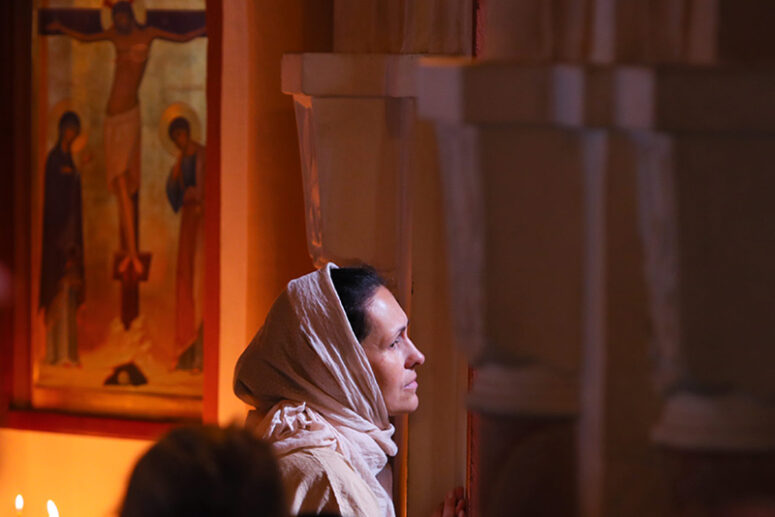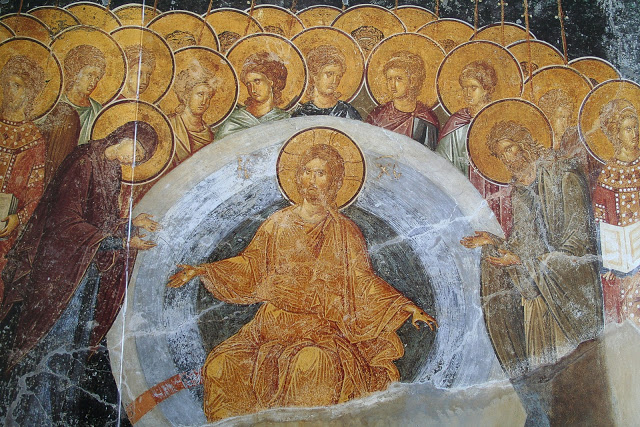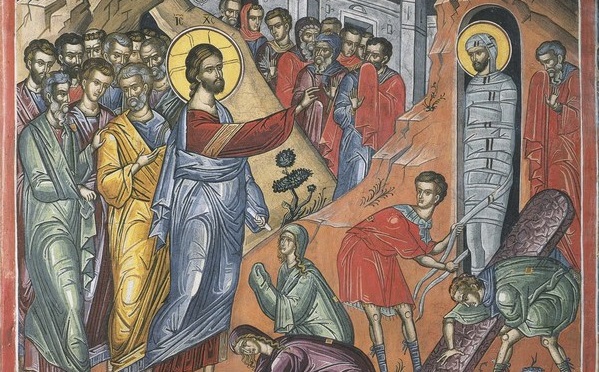
We need to show mercy to other people, and yet we must be strict to ourselves. Self-pity can easily become an obstacle in our spiritual life and is often rooted in sins like laziness, relaxation, despondency and even despair.
Here are some examples.
The first one begins with a thought like, “Man, it’s been a tough week and I’m tired. Why don’t I miss the Sunday service today and sleep an extra hour instead”. Let’s say, this happens once or twice and then repeats until our heart gradually begins to grow cold to faith. During the Liturgy, especially on Sunday, the grace of the Holy Spirit enters a person, scorches his sins, unites him with God, cleanses and enlightens him. The Holy Fathers write that even looking at the Body and Blood of Christ has a beneficial effect on a person. If we do not go to Sunday Liturgy, our hearts grow insusceptible to spiritual life. Sins accumulate and make it more and more difficult for us to rise and start moving towards God. We all know how difficult it is to confess when you have not been to confession for a long time. It is the same with Communion or any other part of our spiritual life. Breaking out of the material world is as difficult as pulling ourselves out of a swamp. It all starts with self-pity and brings us to the point when a cup of coffee, a TV show or some extra sleep become more important than the Liturgy, and before we know it, we go without church for a half a year, depriving our souls of the special grace of the Holy Spirit and burying them under the rubble of everyday life.
We see a different kind of self-pity when people choose not to fast so as not to undermine their health. I see many people like this in church. They come to me every time in the very beginning of Lent asking to allow them not to fast.
Of course, there are cases when a person cannot fast — a pregnant woman, a cancer patient or a person suffering from a perforated ulcer etc. But often people convince themselves that fasting is harmful to them simply because they feel sorry for themselves for a number of reasons, such as gluttony, fear of death or medical panic.
Faith is a powerful thing. The Savior said, “… according to your faith be it unto you” (Matt. 9:29). Cases are known when a red-hot coin, replaced by a sleight of hand with a cold one, made such a powerful impression that burnt marks appeared on a person’s skin after contact with a cold coin.
In his remarkable book titled Ascetic Experiments St Ignatius (Brianchaninov) writes that observing a fast, albeit a moderate one, is necessary to heal the soul and body; while breaking the fast and indulging oneself caused by self-pity harms both mental and physical health. St Basil the Great wrote, “The bottom line of fulfilling God’s commandments is eternal life; and the bottom line of violating them is eternal death”.
Finally, there is self-pity based on envy, despondency and despair. A classic example is a teenager looking at his peer and thinking, ”She is beautiful, but I am not”. This kind of self-pity is mixed with envy and despondency. Older people often have a similar kind of self-pity developing for other reasons. For example we may think that someone else has a better family, a faster car and a nice summer house while our own life is a struggle. Chronic self-pity causes people to revel in their own pain, developing chronic despondency and looking every day for a new ‘dose’ of evidence to prove their own misfortunes. The extreme form of this sin is suicide. And the essence of this sin is fighting against God. Metaphorically speaking, a person suffering from it lives under the slogan, “I do not agree with you, God, that created me this way. I reject the life that you gave me because others live much better”. But often such a person does not understand that these ‘others’ have their own sorrows and carry their own crosses, whereas he was given just the cross that was needed for him, and it must be carried with dignity. It is important to love the life that God has given us and steer clear of self-pity.
The Lord wants us to work hard on our way towards salvation before He carries us in His arms into the eternal bliss of the righteous.
by Priest Andrey Chizhenko
Translated by The Catalogue of Good Deeds
Source: https://pravlife.org/ru/content/kakoy-vid-zhalosti-yavlyaetsya-otricatelnym-chuvstvom




